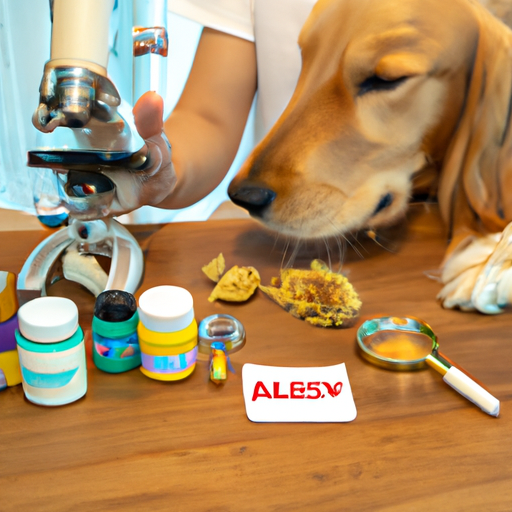“`markdown
How to Treat My Dog’s Allergies
Understanding Your Dog’s Allergies
As a caregiver, you must first understand the nature of your dog’s allergies. Just like in humans, allergies in dogs are caused by an overactive immune system. Your furry friend’s body begins to identify certain everyday substances as dangerous even though they aren’t. These substances, known as allergens, can range from proteins in their food, pollen in the air, dust mites, or even their own dander.
Identifying the Signs of Allergies
To provide the best care, keep an eye out for the following signs. They could indicate that your dog is suffering from allergies:
- Skin irritation: Also known as dermatitis. Your dog may scratch excessively, and red patches or hives could appear on their skin.
- Ear infection: Dogs with allergies often suffer from recurring ear infections. Look out for a foul smell or a yellowish discharge.
- Gastrointestinal problems: Vomiting, diarrhea or excessive gas can be a sign of food allergies.
Remember, every dog is different. Symptoms can vary, so always consult with your veterinarian if you suspect your dog has allergies.
Common Allergens for Dogs
Here are some common allergens that could be affecting your dog:
- Pollen from trees, grasses, and weeds
- Dust mites
- Mold spores
- Animal dander
- Certain foods, especially those high in certain proteins
Treatment Options for Dog Allergies
Based on the allergen type, your dog’s treatment plan could include the following:
-
Change in Diet: If your dog has food allergies, a diet change is necessary. Your vet may recommend a diet made up of novel proteins and carbohydrates, eliminating potential allergens.
-
Medications: Depending on the severity of the allergies, your vet may prescribe antihistamines, corticosteroids or a newer class of drugs called immunomodulatory medications.
-
Allergy Shots: Also known as immunotherapy, this treatment works by gradually desensitizing your pet’s immune system to the allergen.
-
Preventive Measures: This includes regularly cleaning your home to remove potential allergens like dust and mold spores, and using hypoallergenic dog shampoos.
FAQs
Q: Can dogs develop allergies at any age?
A: Yes, dogs can develop allergies at any age, but they are most commonly diagnosed between 1 and 3 years old.
Q: Can I use human allergy medication for my dog?
A: It’s not recommended to give your dog any medication without consulting with your vet. Some human medications can be harmful or even fatal to dogs.
Q: How long does it take for food allergies to clear up?
A: It can take anywhere from a few weeks to a few months for a dog’s food allergy symptoms to clear up.
Q: Can my dog be allergic to me?
A: Yes, dogs can be allergic to human dander, though it’s rare.
“`



